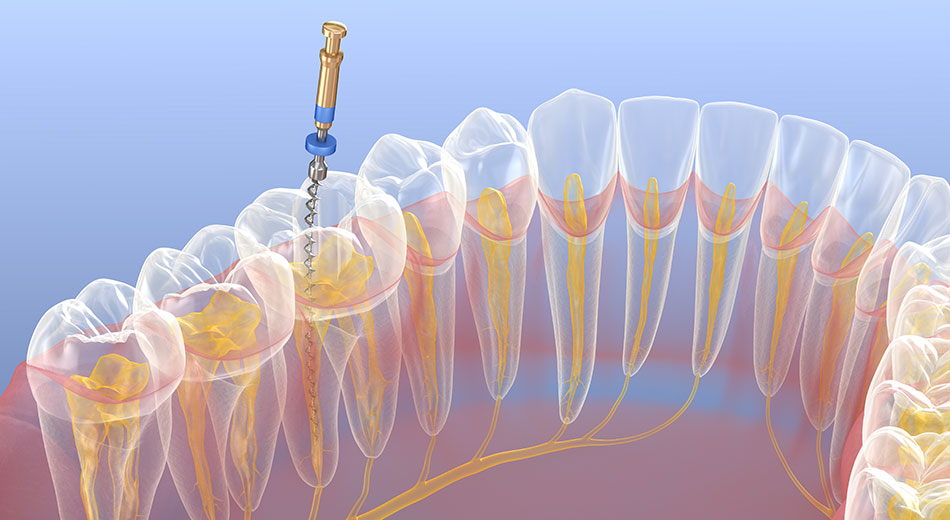Call 408-257-5950 • 19000 Cox Avenue, Suite A • Saratoga, CA 95070
Answers to your top questions about Root Canals

What is a Root Canal?
Are you suffering from a painful and infected tooth? Root canal therapy offers the perfect solution to defend your natural teeth. This procedure will cleanse and disinfect the inside of your root canal, allowing us to restore it with an impervious seal, keeping any future infections away! Don’t let inflamed or infected teeth ruin your day; get back in control with root canal therapy.
What are the signs of needing a root canal?
A root canal might be necessary if you experience any of the following symptoms:
- Sharp pain while chewing or biting
- Pimples on the gums
- A chipped or cracked tooth
- Sensitivity to hot or cold that lingers even after the sensation has been removed.
- Swollen or tender gums
- Deep decay or darkening of the gums
Will I feel pain during or after the root canal?
Most root canals are performed to reduce the discomfort caused by infection or inflammation in a tooth’s pulp. Thankfully, most patients report that they experience no pain during and after the procedure due to modern anesthetic methods.
After your treatment, it’s common to experience a few days of sensitivity in the tooth, mainly if there was pain or infection before the procedure. The pain and discomfort can be treated with over-the-counter or prescription medications. Follow your dentist’s instructions carefully.
After completing your endodontic treatment, your tooth may feel slightly different from your other teeth. If you experience severe pain or pressure lasting longer than a few days, it is best to call your dentist.
How much will the root canal procedure cost?
When determining the cost of this dental procedure, several factors must be considered, such as which tooth is involved and the complexity of your condition. Molars usually involve more intricate treatment and tend to have a higher fee. Fortunately, many dental insurance plans will cover at least some (if not all) expenses related to endodontic treatment.
In general, endodontic treatment and restoration of the natural tooth cost less than extracting the tooth. If a tooth is removed, an implant or bridge must be placed to support the teeth on either side and enable chewing. These alternative procedures can often cost more than endodontic treatment and restoration.
After the procedure, will the tooth need any special care or additional treatments?
Please refrain from chewing or biting on the treated tooth until your dentist has had a chance to restore it. If you leave your tooth unrestored, it is more likely to fracture, so you should schedule a meeting with your dentist for a complete restoration. Good oral hygiene, which includes brushing and flossing daily and regular checkups and cleanings, is crucial for keeping your teeth healthy.
What can I eat after a root canal?
Following a root canal, try to eat softer foods that don’t require much chewing. This will help you recover quickly and comfortably. This includes applesauce, yogurt, eggs, and fish. Be careful when consuming hard or hot foods to prevent cavities or tooth pain. Some dentists recommend not eating for a few hours until the numbness from dental work fades, so you don’t accidentally bite your cheek or tongue.
Does a root canal kill the tooth?
A root canal may remove the tissue but doesn’t kill the tooth. In fact, after a successful root canal procedure, your treated tooth will return to work just like it did before you had any issues. Although root canals remove the nerves inside a tooth, these nerves are not essential for a fully formed tooth.
